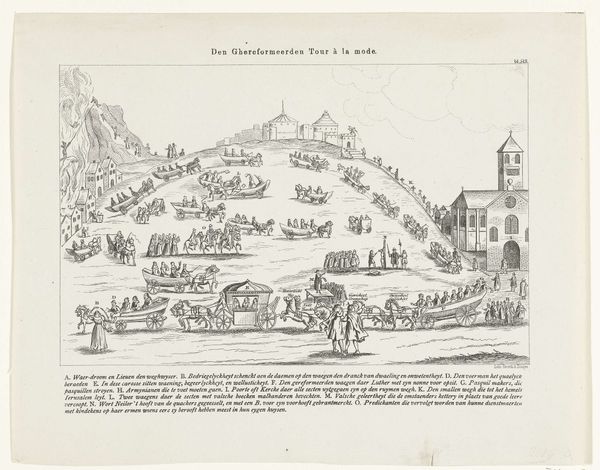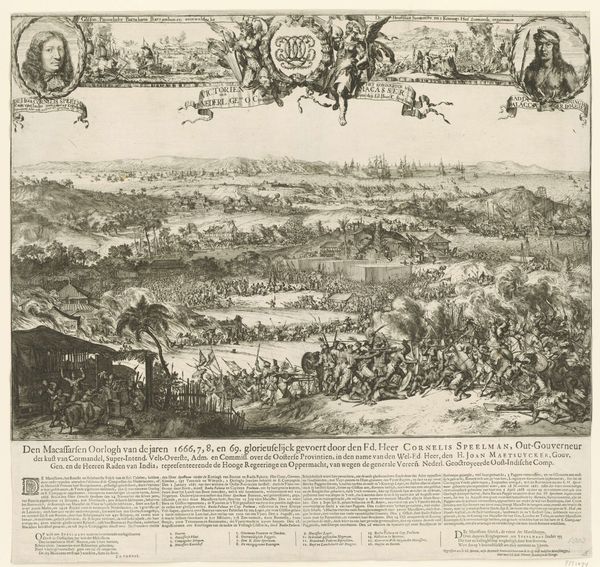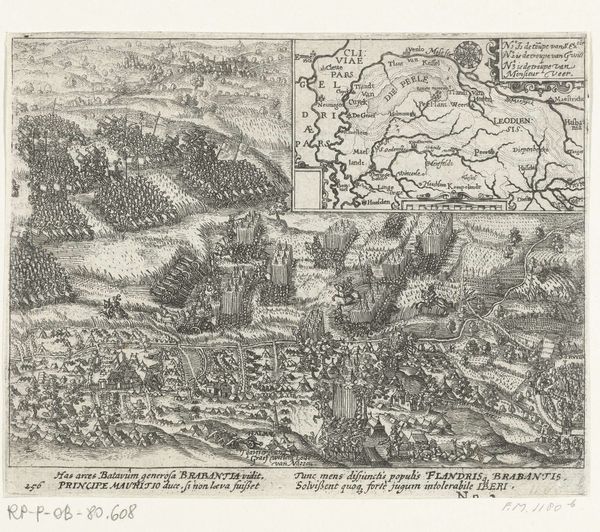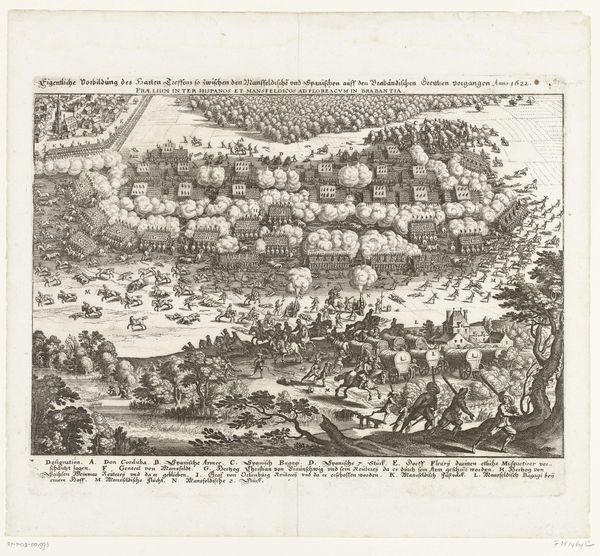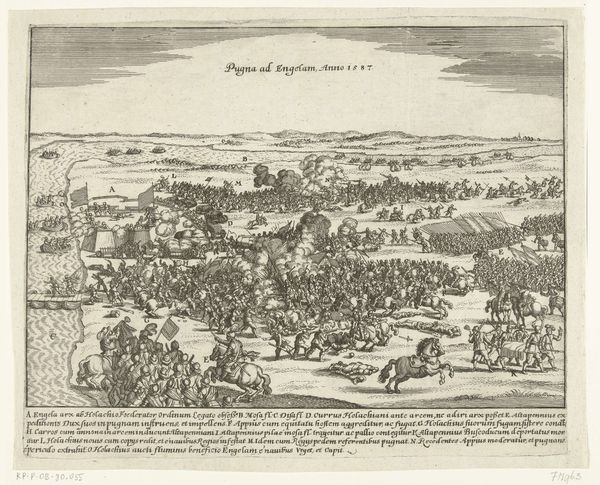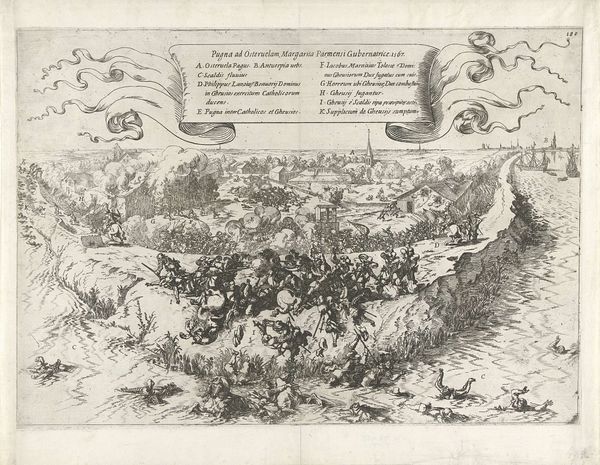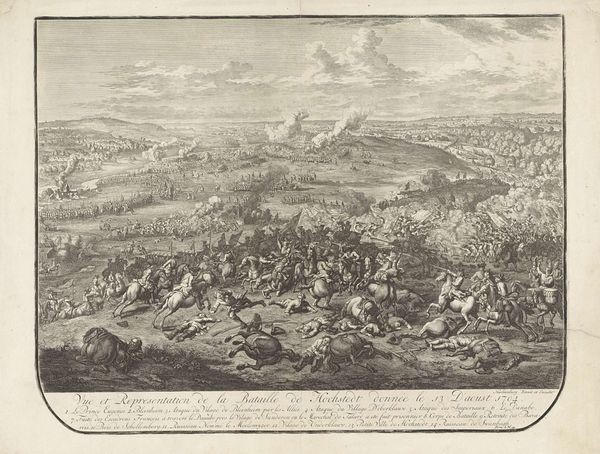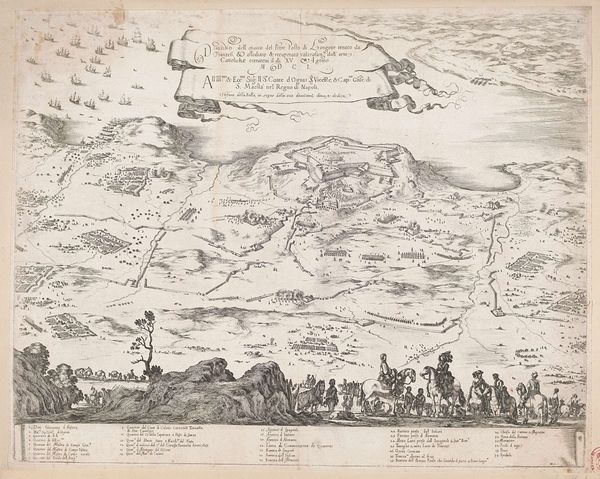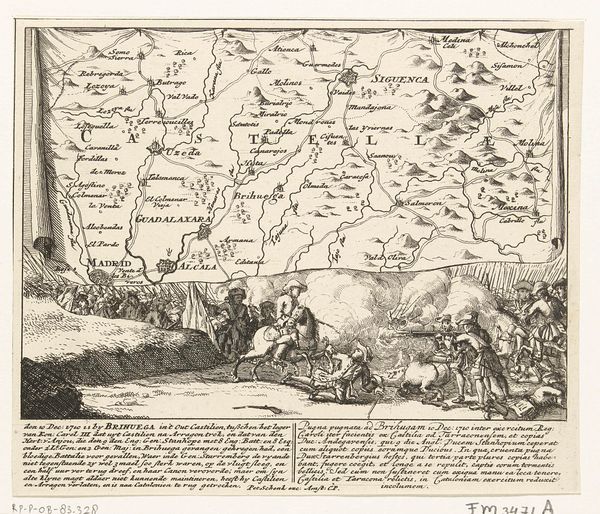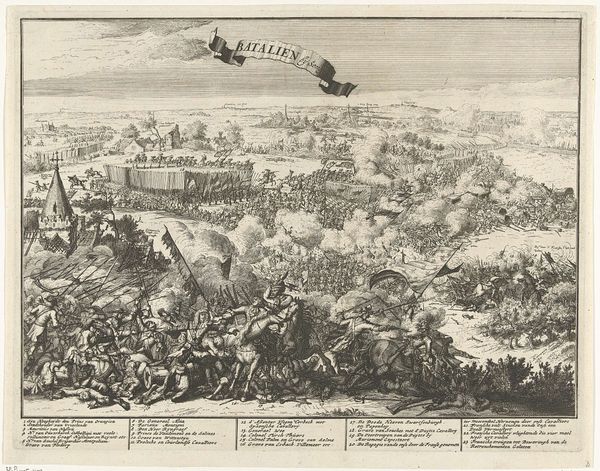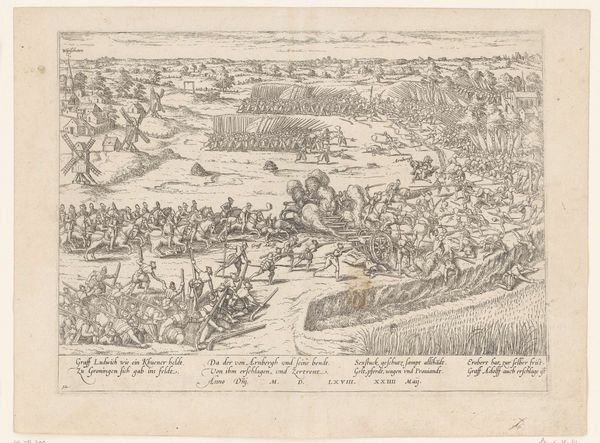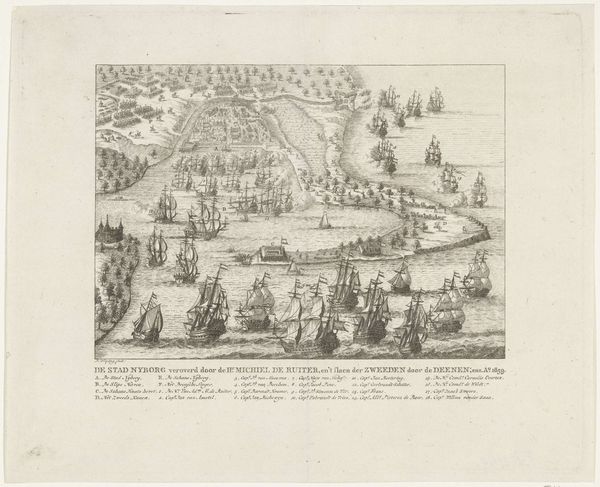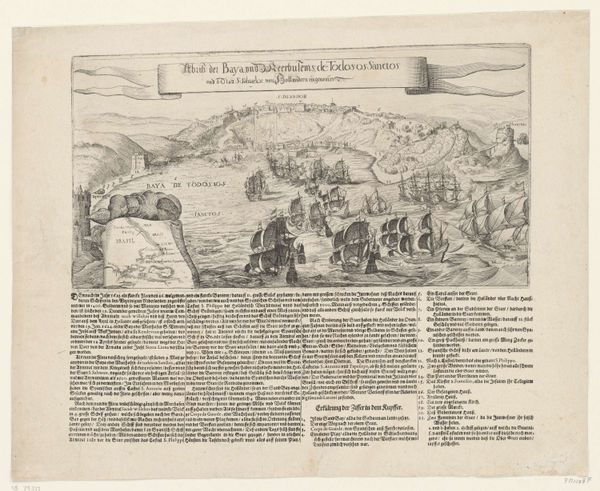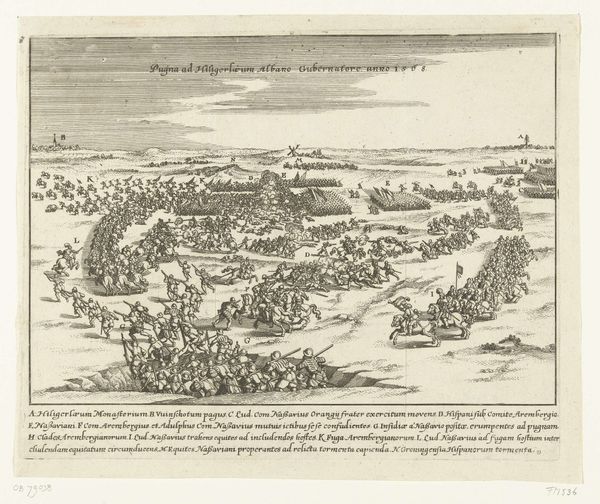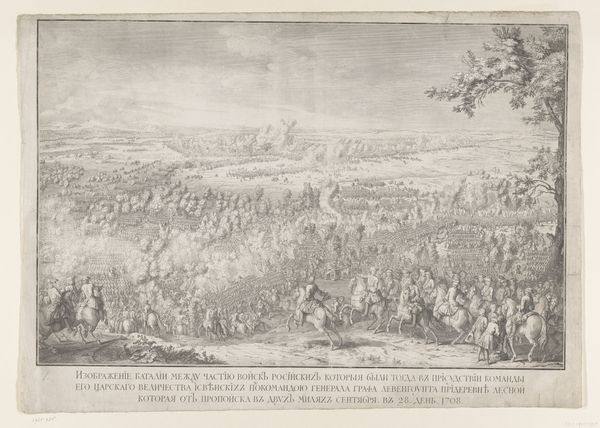
Dimensions: height 218 mm, width 712 mm
Copyright: Rijks Museum: Open Domain
Carl Friedrich Würthle's "View of Heidelberg" is rendered using etching, a printmaking technique where lines are incised into a metal plate, inked, and then pressed onto paper. The fine lines, precise detailing, and tonal gradations demonstrate the artist's mastery of this labor-intensive process. The etching method allows for the reproduction of images, serving the burgeoning market for landscape views among middle-class consumers. Etchings like this were essentially tourist souvenirs. Consider the amount of labor involved: from the initial drawing and engraving, to the inking and printing process. Each print required skilled labor, and was tied to the broader economics of print production and distribution. Würthle's technique and chosen material invites us to reflect on the social and economic context in which the artwork was made, bridging the gap between fine art and the more commercial world of printmaking and distribution.
Comments
No comments
Be the first to comment and join the conversation on the ultimate creative platform.
